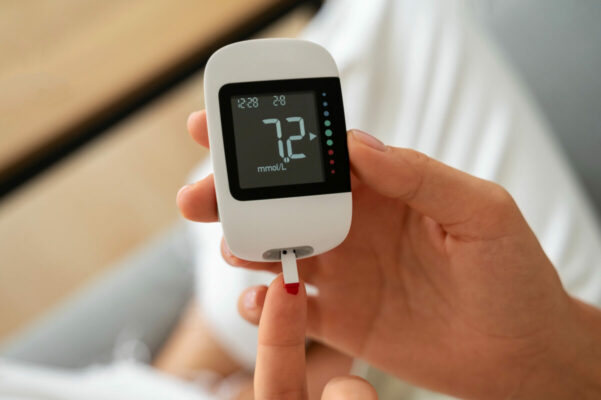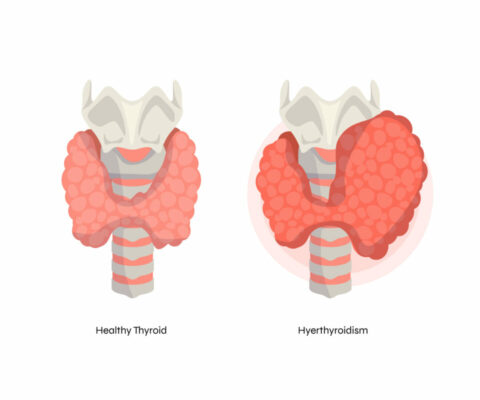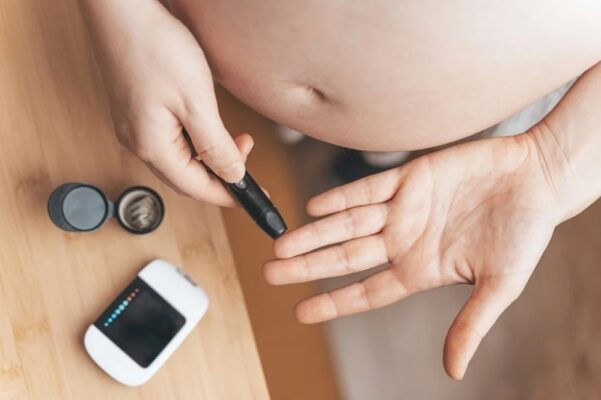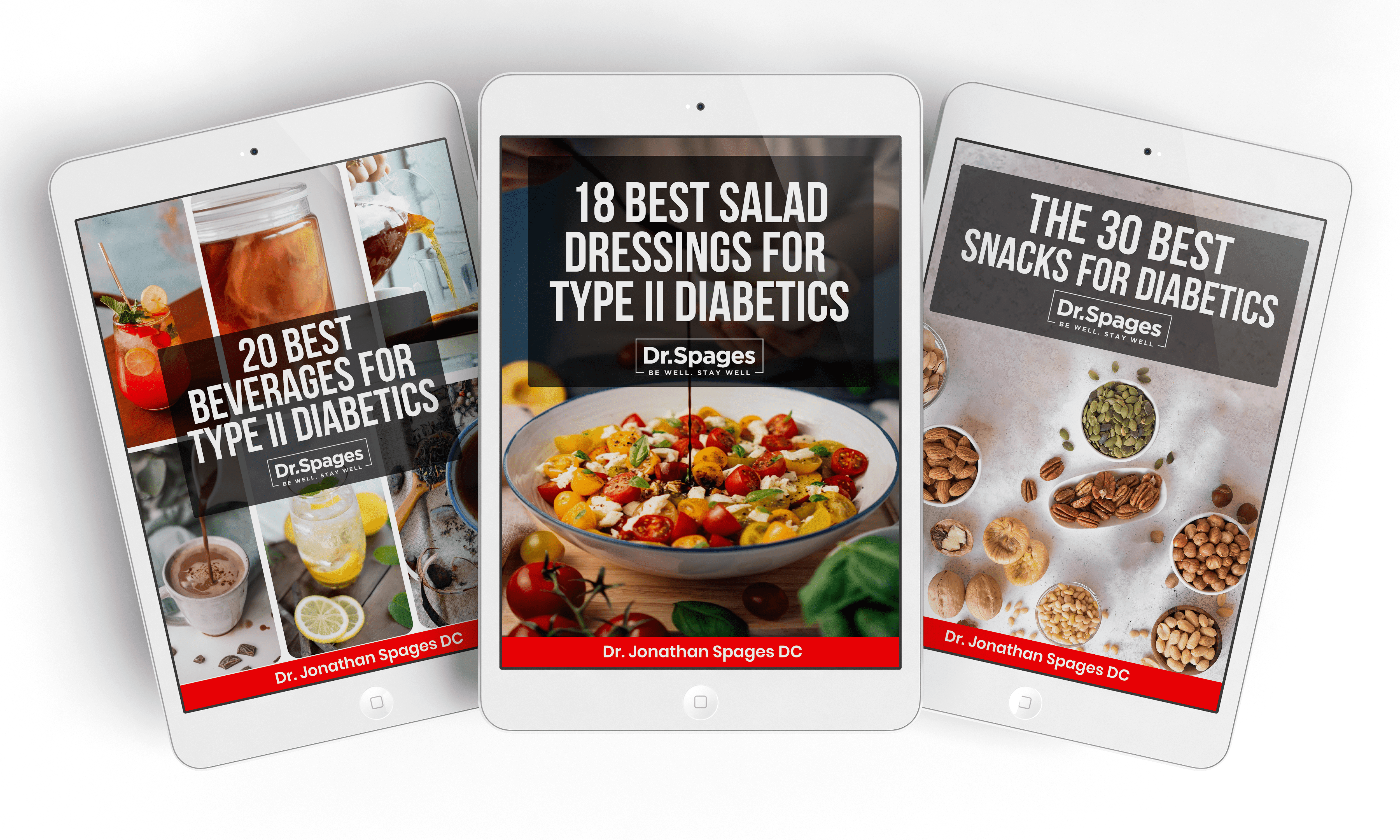Is Type II Diabetes Genetic?
How often is it that when I meet with somebody and they are diagnosed as a type two diabetic, they’re told it’s genetic and there’s nothing you can do about it and just have to live with it. And usually that happens after you’ve tried to do certain things, right? Maybe it’s where you tried your diet or tried taking supplements or exercising.
And it’s very easy to kind of blame someone down the line. Right? Maybe it’s mom’s fault, dads fault. Some people blame their parents for everything that goes bad. So it could be a factor. Or maybe you have an aunt or an uncle or somebody else. Somebody actually just you know, you may kind of go through your memory and say, you know, I remember an uncle and aunt or family member who went through diabetes.
So it’s got to be genetic. So I’m in this video right now. What I’m going to do is actually go into, well, is type two diabetes genetic and what’s the real facts behind that? So buckle up. Hang on. We have a lot to go over, but you’re really going to get a lot out of this because if we could really debunk this myth, right, you’re going to really understand more about type two diabetes and what to do about it.
All right. So here we go. So it’s really interesting to see, right, because there is actually a really big study that was done many years ago. And in this study, what we find is that basically from 1990 to 2003, they basically conducted one of the most ambitious and important scientific endeavors in human history. Now, you can to imagine all the amazing things that we have accomplished over time and all the amazing, you know, endeavors that we’ve come across, like going to the moon and other other things, such as finding even insulin and other health breakthroughs We have to look at, well, what is really going on underneath the surface when it comes to this whole
entire idea of genetics and diabetes. So it’s pretty remarkable because in October 1990, Congress actually established funding for the Human Genome Project. Well, what the heck does that mean? Well, basically what that means is that we fund it. Me, you, other people. We funded actually a whole entire set of testing to do with genetics and whether or not it actually affects type two diabetes in the actual completion date, believe it or not, was set for 2005.
So that means that they studied this for a long time and we spent obviously a lot of money doing that. And the total cost of this project was $2.7 billion and that’s in 19 $91. So we spent a lot of money to really try to figure out whether genetics played a big role as type two diabetic and other diseases.
Right. They’re thinking like, well, maybe if this gene mixes with this gene, it could maybe be the reason why someone has a disease, or maybe it’s because the way they act or maybe another problem that they’re facing. Well, it is pretty remarkable because we spent a lot of money on this particular study. Right. Because a lot of people want to know, well, is diabetes related to my genetic predisposition?
Maybe it is in the genes and that’s why there is no hope. And maybe that’s why I’m bound to being on diabetic medication or insulin or other things like that. So what was the results? We spent all this money we want to really figure out as a taxpayer, well, is there actually a gene for this and what exactly is going on?
And maybe if they found the gene, it could be the answer. Maybe this is the exact answer we’re looking for to actually find a solvable answer to type two diabetes and make millions of people actually now better. So what they did was they actually completed this project in 2003 and didn’t find a gene for type two diabetes. And, you know, it would be pretty easy if they did, because then all of a sudden maybe they can alter the genes and then that would actually eradicate all the diabetes in the world, which would be absolutely amazing.
Right? If that was possible, that would be pretty, pretty remarkable. But the truth be told is actually that is not the actual answer. And there’s got to be something else you could actually even go and check this out yourself. If you go to genome goby, you could see these remarkable doctors and scientists that actually did this entire study to see whether or not type two diabetes is genetic.
And and honestly, it’s pretty remarkable. They did all of that. They spent all this money and unfortunately didn’t come out with the result that any of us wanted to see, because it would be really awesome if there was an answer under a genetic predisposition from mom and dad and aunts and uncles that you were a diabetic. But honestly, there isn’t.
But there are other things that are really important, and that is the next step of the process. And now let’s get into what could be factors related to type two diabetes and what could be going on under the surface. So what I have come across is that there are actually 16 contributing factors to type two diabetes, and I want to actually dissect each one of them this way.
You have a better glimpse. So I know we just talked about the whole genetic predisposition, but actually I think this will actually help you more understand a little bit of what could have gotten us here in the first place. All right. So let’s go slide by slot here. Okay. The first thing we look at is family history. Now, we already know that there is no genetic predisposition.
However, maybe the environment, right, that you experience when you’re a child, Right? Like the learning habits you had, maybe even how active you were. Were your parents the ones that kind of let you stay inside and read all day or where you active and playing sports, sleeping patterns? Right. Were you staying up late at night doing things you should be doing or watching late night movies or TV or reading books or whatever, and also reward systems.
How common is it for someone to go and actually have a battle reward system? Meaning every single time they do something well or you do something well, you get a tree in the desert, right? Sometimes we even have that ingrained in our own way of doing things. It’s like, Hey, you did really well. Here’s a reward. And that reward is junk food.
It’s probably not a great reward system, right? It may be better off if your parents give you a few dollars after you did something well or even how you reward it yourself. Some people, when they accomplish something really important, instead of doing something abusive, like drinking more alcohol or eating bad food, they may do something proactive. Maybe they go and buy another book, or maybe they go and they get a massage or something else.
That is actually gratifying, right? I know my mom was pretty notorious for when she did something good or accomplished something. She would get her nails done. She would have like a pamper day. And that’s actually a pretty good reward system. But but even though the genetic part isn’t there causing diabetes, there could be an environmental factor. And that’s how you grew up with these eating habits and the activity levels and sleeping patterns and also your reward system.
The next thing let’s look at is the actual distribution of fat to weight, right? So your body basically becomes more rosy into insulin. Right. And resistant to it. And the hormone leptin which actually controls appetite. So the more fat you have, especially around the middle, the more this actually causes more problems. So it is good to make sure that your body composition isn’t actually creating more insulin resistance.
So if you have had kind of that tire around the belly, that is a factor that has been linked to diabetes. And what is really saying is not that is actually diabetes like if you have that, but it does say that that hormone leptin is actually a big factor. So by getting yourself better. Right. And getting these things fixed and getting these hormones better, actually basically can help you not only control your appetite but also look better.
Right. You feel better in your clothes, right? So that that was also really important thing. The next thing we look at is a sedentary lifestyle. Right? So I think everybody knows that when you are going and sitting down all day, right, your body is basically not moving. Now, a lot of times you see these experts, quote unquote, or fitness gurus talking about, well, you know, calories in, calories out.
If you burn more calories. But that doesn’t answer all the questions because we all know people who exercise every day. I had a person that used to deliver my mail. They would walk ten miles a day and they were still overweight. So you would think that you’re walking that far, that you would actually, you know, be able to lose a lot of weight.
But this person unfortunately couldn’t but extend extended period of time when you were actually sitting there. It actually causes more inflammation because your body is sitting there spastic, the muscles are sitting there and that disability lady that you’re getting from not using your muscles causes a lot of problems. Also, you know the phrase, you know, if you don’t use it, you lose it, Right?
Does happen. So it is important that your muscles move around. You’re utilizing sugar, your body has a good circulation to it, but a sedentary lifestyle is a problem because it doesn’t actually help the body function better. And remember, you want to get the body functioning better in order to regulate blood sugar levels and also feel better as well, and also hold down the information which is really born because diabetes is an inflammatory disease, as everybody knows.
All right. The next thing we look at is race. Now. Oh, yeah, you’re probably familiar with this. Is that what a lot of races come over to America and we eat the Western diet, the burgers, the fast food and all of that. They’re likely to actually cause more metabolic issues. Right? So these metabolic issues affect a lot of different cultures.
We look at the Hispanic culture, black culture, Hawaiian culture. Native Americans have a big issue and also even Asian descent. There are some parts of Asia because I traveled to Southeast Asia before doing a mission study and they can’t consume certain alcohol. So even like when they come over to America and they want to be an American and and do the American things like drinking and such, it actually could lead to a lot more problems.
So, yes, there are vulnerabilities related to race. It’s not the only reason, but it is when these cultures and sometimes come over to America and they eat the way the sick American eats. So you don’t want to do that. The next thing we look at his age, right? So now they have done studies where they see that as you get older, actually after the age of 45, you probably have a higher risk factor related to diabetes.
Right. And also, we got to look at the fact that when you start getting older, you’ve accumulated more problems, you’ve eaten more cupcakes, you’ve had more pancakes, you’ve had more bread and pastas and those things. Right? So that accumulation does have a factor. Now, it also is like kind of like the snowflake effect. If you’ve ever read my first book that I wrote, I talked about the snowflake phenomenon that comes on.
Right? So, you know, you look at most people and we already know that diet is not always the number one thing, but it’s a snowflake, right? You take one snowflake like you put it on a branch. It doesn’t do anything. It’s a snowflake. It doesn’t give away anything. Right. But you had Snowflake after Snowflake got their snowflake. And eventually that branch comes down and that’s essentially what happens a lot of times with diets.
Right. So, you know, if you refer back to when you were a kid, I don’t know if one donut is going to make the world change right. But you had donut after going after Donna and things like that, you basically keep getting the body out of balance and that’s how problems happen. So even though there is no genetic predisposition, if your family does things like this where they’re eating the wrong foods and they have these habitual things, I know culturally you go to my house, you know, I’m a half Italian, so, you know, my grandmother, you know, would cook there with that big, huge thing of pasta.
And that was like a tradition, right? Became a tradition. So those traditions could sometimes lead to problems. But as you get older and older and older, it makes it harder because you’ve had more imbalances that have occurred. One of the things you’ll know is that when I start any patient on any care plan, the first thing we work on is getting the body back to balance by doing a cleanse and getting the body functioning.
And it’s pretty remarkable because I see patients in their sixties feeling like they’re on their toes again, because we’re just getting rid of all of this residue from the years of accumulating all of these bad habits. Okay. So there is still hope. All right. So just because you’ve gotten older doesn’t mean, you know, you can’t turn back time a little bit.
All right. The next thing we look at is gestational diabetes. So this is when someone, you know is going through a birthing, right? They’re having a child and they’re going through a point in time where their body starts getting out of whack. Right. All of a sudden, as a mom, you know, if you had around a child, is that all the energy goes to the baby, Right.
Mom becomes less important. And keeping this baby alive and well is number one thing. Well, with that being said, it is not uncommon. I remember my wife, I would always joke with her when we had our first child that she would be able to smell a cupcake for miles away like she’s a shark. Right. Like, you know, sharks can smell blood and water.
And it was pretty funny. And I think that did happen. You know, at that time I lived in New Jersey and we would travel in New York City quite a bit. And, you know, there was times where she was like, I can smell a bakery. And I’m like, there’s nobody curious about what’s going on. But anyway, those cravings, right?
These ridiculous cravings and lifestyle things at that time in hormones, imbalances go crazy and it could lead to issues related to your pregnancy. Right. Which is that gestational diabetes. Now, the thing I see is that if the body can come back after the baby’s born, the hormones can reregulate. Usually not a problem, but very seldom do I see that happen.
Right. You have a child and now you’re late at night trying to take care of your baby. And you know, you’re the stresses. You know, they’re waking up in the middle the night. Those sort of things really throw the body off. And sometimes I should say not even sometimes many times I see women not recover. Even if the baby that caused all these issues is now 40, 50, 60 years old, right.
In their older in their life, it still could be a factor. So this is something that’s really important and it’s kind of overlooked because if those imbalances stay in place, well, it just gets worse and worse and worse. Right. So this is number six gestational diabetes. The next thing we look at is actually there have been studies done where when your baby is bigger, right over £9, that there is a risk factor of more problems.
And this goes back to what I was just mentioning. A body can be more out of balance, right? The hormones can be more of a factor. Maybe the diet was worse during that time. So when you have a bigger baby, it does create more stresses to the body. And then also it could be how did the baby get so big?
Was it genetic right where the baby’s just a bigger baby, just due to genes for the mother and father? Or was it the fact that there was just bad habits? The person was eating too many carbs along the way? All right. So this could be a big factor related to that as well. The next thing we look at is pre-diabetes.
Now, if you followed me and studied me long enough, I don’t believe in pre-diabetes. Either you have a blood sugar problem or you do not. So what pre-diabetes is, is basically when you’re A1, see, goes over 5.7, right? So it’s going up 5.7, 5.8. It gets into that six range and all of a sudden, you know, the doctor comes in and says, you’re pre-diabetic, you know, give you the basic spiel, watch what you eat, lose some weight, whatever.
But it’s the fact that you have a blood sugar problem is the issue. Right. And that is something that that has to be addressed in order for anybody to get better. It’s not a matter of, well, you know, are you really sick of the type two diabetic and now you have a disease or do you have a blood sugar problem?
And I always say nip it in the bud and handle it before becomes a diabetic issue. Right before that blood sugar level comes down. And you’d be surprised how many times that your diabetes is directly related to an earlier problem. Right. Blood sugar problems, earlier issues with not balancing your blood sugar. The person who wakes up in the morning, drinks a cup of coffee, goes to work, doesn’t eat till 2:00.
It’s like the recipe for breaking a metabolism. Like if you ever want to break a metabolism, do that right. Just neglect yourself. Don’t eat and get stimulants all day. Right. Which is unfortunately sometimes the American way of doing things. So prediabetes number eight does have a big factor. All right, let’s continue. The next one we look at here is actually who you surround yourself with, right?
So we could see in social circles, right? The people you hang out with, they have a big effect on whether or not you eat healthy or not. I have been kind of lucky because many of my friends are doctors or they practice similarly to me or they follow in my footsteps with the way they eat. So it’s pretty easy when I have an event that goes on a birthday party or something, something else that is obviously a social gathering.
But how often do we see it where it like someone goes and you know the job you have, someone’s going to bring the food in and this food is all like bad stuff cookies, cakes, donuts, things of that nature. And you’re just wondering, probably like, Hey, does my boss really like me? Like, why are they giving me all the wrong food, especially during the holidays?
So, you know, the lifestyle habits you have and also the people closest to you also have an effect on family members, friends, coworkers. If they’re all eating bad, it’s common that you may do the same thing right? What’s that phrase they say? Right? Birds of the same feather flock together and it’s common wear of all your friends allow for a bad diet or a bad lifestyle.
You may fall in of that because that’s what’s acceptable, right? Like that is really acceptable. Where hey, where to eat bad food or hey, we’re going to drink alcohol, we’re going to do all the wrong things. If that becomes the way the group thinks and the way the group operates and the amount of health knowledge that that group uses, it’s kind of hard to actually get yourself better.
This is why I tell patients like, you want to make sure everybody’s on the same team, right? Especially like your significant other, right? You don’t want to have to refrigerator’s in a house, one house, one refrigerator being, you know, the healthy refrigerator and then the other one being the sick refrigerator. So it’s good when when you have that social circle which gets everybody on the same page.
All right. So another really big factor, too, too related to diabetes. So in a lot of my webinars, as well as when I talk to patients, it’s not uncommon for me to see that when someone becomes a type two diabetic prior to that, like even way earlier, they were actually diagnosed with hypothyroidism. Now you may know this or not, but I actually was diagnosed with hypothyroidism thyroid ism years ago and I was actually even testing something called an autoimmune disease called Hashimoto’s and is basically the researcher that figured out that the body gets attacked.
Right. And when the thyroid gets attacked, the name of it is called Hashimoto’s. So when a lot of people are diagnosed with hypothyroidism, they look for something called TSC thyroid stimulating hormone. Now TSC has a particular range. It needs to be in order for your body to function the best, it needs to be at a certain range. This way everything goes good.
But what happens a lot of times is the antibodies actually attack the thyroid tissue and it makes for a lot of problems. It makes you intolerant of certain foods and makes things become a big issue. And the bigger problem is that the majority of hypothyroidism is this autoimmune disease. But in our on our current health system and I don’t think will ever change, unfortunately they’re not really addressing the root imbalances there and it could be a major, big factor.
And there’s something called a 1.5 diabetic, which I talk about in my book, and I also talk about other videos where this this type of diabetic is usually the hardest to actually help because they have two different diseases. They have a metabolic disease on one side and on the other side they have an autoimmune disease. So hypothyroidism plays a big role in whether or not someone could become a type two.
Diabetes can have little hairballs. The other thing is a thyroid. Really, really, really important for regulating blood sugar, weight, energy, those sort of things. Really, really important. The next thing we look at, it’s PCOS. So PCOS is polycystic ovarian syndrome. What the heck is that? Well, it’s basically when your body is making too many cysts, Poly means many, right?
It makes too many cysts. This is not supposed to happen. And a lot of times I see this in women, especially when they started noticing things, right? Maybe it’s harder for them to lose weight. Maybe they they’re feeling a little bit more aggressive, maybe they’re more moody. Hair is growing in places they do not like. And PCOS is a pretty serious thing and has to do with hormones converting.
I talk about this quite a bit in my book and other things, but but this is a really important factor. So this goes back to that, that hormone imbalance. So just because later in life you get diagnosis and diabete, it doesn’t mean something triggered it years and years ago. You may be thinking to yourself, well, you know, I’m past the age of 60 or I had something like this when I was a kid or after, you know, when I was in my thirties.
And, you know, I had a hysterectomy. But that doesn’t mean the mechanism of what caused that. PCOS is still not in place. So now you’re struggling. You’re struggling way back then, but now you have a different disease. So something really, really important when we look at what can be really triggering behind a type two diabetic, the next thing we look at is something called hypertension, right?
Hyertension, high blood pressure. So this includes the whole cascade of issues, right? You have the issues of the weight, the blood sugar, the blood pressure, the cholesterol all goes in one one filling here. So this has to show that the body is out of balance. That’s a basically what you’re looking at. And actually everything I’ve mentioned so far and all 16 of these will actually be because the body is out of balance.
So by having these conditions, it basically means something’s out of balance and is not being addressed. So this predisposes you for other illnesses, as you know. But it’s all connected younger. Stanley Even though we could sit here and be like, Oh well, it’s definitely the hypertension. They’re all interconnected. The thyroid related to your eating habits, related to your to your body’s ability to regulate blood sugar level, the blood pressure, they’re all intertwined.
And that’s why some people get pretty confused because they just go after one thing. It doesn’t lead to a solution. The next one here is actually anthracis nigra cans. And what this is, is basically it’s the under armpit folds and skin that becomes darker and thicker and actually becomes more velvety and it’s a skin disorder. Now, what is this?
It’s basically the body getting very thick and inflamed due to blood sugar issues and other factors. There is links to this particular condition related to having blood sugar problems, also weight issues. So sometimes you even see this body folds, right. Like especially if you gain a lot of weight or even armpits and things of that nature. So you’ll see this where the skin becomes thicker, almost like kind of leathery and also darker.
So this also plays a role in blood sugar levels. Okay. Okay. So if you’re a patient in my office, obviously we want to watch on gluten, but this is a really big issue. Gluten nowadays is a big topic. I put a lot of videos out on this particular topic, but because of the gluten and the amount of inflammation people get when they eat gluten, gluten is the protein and wheat.
It does relate out to increased blood sugar levels. I’m not going to go deep dive until it right now on this particular presentation. But if you do search out other videos that I put out, I do actually go into deep depth. But here is the thing We want to make sure we eliminate and stay away from gluten because that creates an inflammatory response.
So you want to stay away from that, especially as a Type two diabetic. The next thing we look at is poor sleep cycles. Now I talk about this quite a bit on webinars and patients who work I work with in my office, we look at something called the HP axis, the hypothalamic pituitary adrenal axis, and this is where, you know, sleep patterns come in and brain rhythms.
Well, there’s a lot of things that go on in the sleep, and that’s not really what the purpose of this particular presentation is. But when you start seeing sleep cycles go off, why? Well, you’re waking up in the middle of the night because you’re taking medication. It makes you happy a lot, right? Or you’re seeing that your blood sugar levels are high and you’re going to the bathroom over and over again.
Well, this does affect cortisol levels and stress hormones, and it does make it harder for your metabolism to get going. And this leads on to obesity and other weight issues, especially like people have heard of like CPAP machines and sleep apnea. Well, if you’re having an asthma panic response to the body, that means your body stops breathing. That’s not good and that’s something that you need to make sure is functioning correctly.
But a poor sleep cycle actually does affect a lot. Now, let’s get into the last thing we want to talk about here related to what could be affecting and causing blood sugar levels to go up that can linked to type two diabetes. And that is going to be a background of having a stroke. Right. So if you’ve had so many imbalances in your body and your body is actually clotting and causing issues related to your heart and you’ve had a stroke, while obviously your risk factors associated with it and.
BLITZER levels because the whole system is related, right? They’re all intertwined and interconnected. So they all have to work together. So this is why if you’ve had a cardiovascular event such as a stroke, then it actually raises your your risk factors to being a diabetic. Because why? Because your body was out of balance. Big time. Out of balance.
In order for the stroke to happen in the first place. So diabetes somehow just creeps within that and that actually leads to more and more problems. So what I like to do now is I want to kind of change speeds a little bit. And let’s talk about the things you actually can do and you actually get a better glimpse of what to do to actually get yourself better and to actually improve your type two diabetes.
So hold on. Here we go, round number three. So you’re wondering what is the root problem? Okay, we got into all these slides. We started out first saying, well, it’s genetic or it’s got to be genetic. And now we’re looking at the fact that, well, maybe it’s not genetic. And all these other 16 other things do play a contributing role.
But now the question is, well, what is exactly the problem? So I always tell people this is really what it looks like, right? So we come over here and we look at this. Right. This iceberg would be similar to your overall body. Right. And your overall health. What we know about essentially is on the top of this iceberg, that’s really all we know, right?
We know about the fact that, you know, there is a chance that let me raise this so you could see it so we know that there is diabetes. Right? That’s one issue. You know, there’s weight struggle, there’s low energy, there’s potentially neuropathy, heart issues, blood pressure and all this. Right. Well, the way our society works is what do we do?
Well, we come in here and we start going and try to treat this with drugs, Right? We go we put all the medications out there. Right. Your insurance will pay for that. Or so people actually take supplements, right? They take vitamins to try to handle it. Right. So they have diabetes. There’s like a thousand things out there that you can buy on Amazon that treat the symptoms of your body.
Right. Like diabetes. Some people try to diet here, some people try to exercise. And the problem is this is the top of the iceberg, right? If anybody knows anything about an iceberg, the largest part is on the bottom right. All of this down here is what is the bigger picture. And what sits down there is what essentially is causing the top.
So you could see all this stuff on top that is caused by the bottom. So what really goes on under diabetics and I’ve been doing this a long time helping tens of thousands of people. And I’ll tell you that when you start chasing the top here, the diabetes, the blood pressure, the weight struggle and all of that, you don’t really get anywhere.
You get pretty frustrated because you’re thinking, oh, what’s the next diet? What do I need to eat? Or what’s the best exercise program? And it doesn’t leave a lot of hope. And it’s very frustrating. It’s exhausting. It’s expensive, right? I mean, keep on taking more and more drugs and it leads on to bigger and bigger problems. We’re taking more and more supplements, right, that aren’t working.
It’s expensive, right, Because you pay $1 and it doesn’t work. It puts you in the wrong direction. That’s a waste of a dollar. Whereas if you took $100 and it put you in the right direction, then that’s a much better investment in your health. So let’s look at the bigger picture and this is what really goes up. So on the bottom of this whole equation, right, is all of these things that sit below it, right?
We look at something called the adrenal issues. We look at feedforward, bidirectional, vicious cycles. We look at infection, hormone imbalance, dysbiosis, toxins, the liver. I’ve never seen in proper functioning liver in a diabetic, by the way, mold. We have inflammation, thyroid, HPV, access, autoimmune and metabolic blocks. And essentially what happens in my office is that patients that I work with, we actually just start going and erasing each area.
Right. And I use the word race loosely, but we go we start getting all these things back to where they should be, right? And by doing that, what it does is essentially makes this iceberg smaller and smaller. And boy, my screen is really looking ugly right now, but you get the point, right? So it makes us iceberg smaller and smaller and thus you’ll see the diabetes start going away and improving.
You start seeing the weight go better and you start seeing energy improve, neuropathy get better. And that’s not because we’re treating the neuropathy, it’s that we’re getting to the root imbalance. And that is what I think that’s where the magic is, right? That’s where really we want to see a cool magic show. That’s where it is. It’s on the bottom here.
And yes, it requires work. Yes, it requires some strategy, quite a bit of strategy and protocols and those sort of things. But that is really how patients are able to get better throughout all of this. Okay. So so anyway, if if you have these things on the bottom going on and it’s not being addressed, that is why people continue to struggle needlessly, in my opinion.
So this is a lot of information and and I know we started with genetics, right? But we got all the way over to all the things that contribute to type two diabetes. So so I hope you really got a lot out of this and I hope you really, really enjoyed the information here because this could actually really make an improvement in your overall quality of health.
Thank you for watching. If you want more information, you can visit my website. WW w Dr. J. Space.com. I have tons of free things on there. I’ve recipes, I have e-books, I have courses on there, even supplements that I recommend. So check that out. But I hope you got a lot out of this and be well stay well.
Thank you for watching and have a good rest of your day. Take care.
How often is it that when I meet with somebody and they are diagnosed as a type two diabetic, they’re told it’s genetic and there’s nothing you can do about it and just have to live with it. And usually that happens after you’ve tried to do certain things, right? Maybe it’s where you tried your diet or tried taking supplements or exercising.
And it’s very easy to kind of blame someone down the line. Right? Maybe it’s mom’s fault, dads fault. Some people blame their parents for everything that goes bad. So it could be a factor. Or maybe you have an aunt or an uncle or somebody else. Somebody actually just you know, you may kind of go through your memory and say, you know, I remember an uncle and aunt or family member who went through diabetes.
So it’s got to be genetic. So I’m in this video right now. What I’m going to do is actually go into, well, is type two diabetes genetic and what’s the real facts behind that? So buckle up. Hang on. We have a lot to go over, but you’re really going to get a lot out of this because if we could really debunk this myth, right, you’re going to really understand more about type two diabetes and what to do about it.
All right. So here we go. So it’s really interesting to see, right, because there is actually a really big study that was done many years ago. And in this study, what we find is that basically from 1990 to 2003, they basically conducted one of the most ambitious and important scientific endeavors in human history. Now, you can to imagine all the amazing things that we have accomplished over time and all the amazing, you know, endeavors that we’ve come across, like going to the moon and other other things, such as finding even insulin and other health breakthroughs We have to look at, well, what is really going on underneath the surface when it comes to this whole
Entire idea of genetics and diabetes. So it’s pretty remarkable because in October 1990, Congress actually established funding for the Human Genome Project. Well, what the heck does that mean? Well, basically what that means is that we fund it. Me, you, other people. We funded actually a whole entire set of testing to do with genetics and whether or not it actually affects type two diabetes in the actual completion date, believe it or not, was set for 2005.
So that means that they studied this for a long time and we spent obviously a lot of money doing that. And the total cost of this project was $2.7 billion and that’s in 19 $91. So we spent a lot of money to really try to figure out whether genetics played a big role as type two diabetic and other diseases.
Right. They’re thinking like, well, maybe if this gene mixes with this gene, it could maybe be the reason why someone has a disease, or maybe it’s because the way they act or maybe another problem that they’re facing. Well, it is pretty remarkable because we spent a lot of money on this particular study. Right. Because a lot of people want to know, well, is diabetes related to my genetic predisposition?
Maybe it is in the genes and that’s why there is no hope. And maybe that’s why I’m bound to being on diabetic medication or insulin or other things like that. So what was the results? We spent all this money we want to really figure out as a taxpayer, well, is there actually a gene for this and what exactly is going on?
And maybe if they found the gene, it could be the answer. Maybe this is the exact answer we’re looking for to actually find a solvable answer to type two diabetes and make millions of people actually now better. So what they did was they actually completed this project in 2003 and didn’t find a gene for type two diabetes. And, you know, it would be pretty easy if they did, because then all of a sudden maybe they can alter the genes and then that would actually eradicate all the diabetes in the world, which would be absolutely amazing.
Right? If that was possible, that would be pretty, pretty remarkable. But the truth be told is actually that is not the actual answer. And there’s got to be something else you could actually even go and check this out yourself. If you go to genome goby, you could see these remarkable doctors and scientists that actually did this entire study to see whether or not type two diabetes is genetic.
And honestly, it’s pretty remarkable. They did all of that. They spent all this money and unfortunately didn’t come out with the result that any of us wanted to see, because it would be really awesome if there was an answer under a genetic predisposition from mom and dad and aunts and uncles that you were a diabetic. But honestly, there isn’t.
But there are other things that are really important, and that is the next step of the process. And now let’s get into what could be factors related to type two diabetes and what could be going on under the surface. So what I have come across is that there are actually 16 contributing factors to type two diabetes, and I want to actually dissect each one of them this way.
You have a better glimpse. So I know we just talked about the whole genetic predisposition, but actually I think this will actually help you more understand a little bit of what could have gotten us here in the first place. All right. So let’s go slide by slot here. Okay. The first thing we look at is family history. Now, we already know that there is no genetic predisposition.
However, maybe the environment, right, that you experience when you’re a child, Right? Like the learning habits you had, maybe even how active you were. Were your parents the ones that kind of let you stay inside and read all day or where you active and playing sports, sleeping patterns? Right. Were you staying up late at night doing things you should be doing or watching late night movies or TV or reading books or whatever, and also reward systems.
How common is it for someone to go and actually have a battle reward system? Meaning every single time they do something well or you do something well, you get a tree in the desert, right? Sometimes we even have that ingrained in our own way of doing things. It’s like, Hey, you did really well. Here’s a reward. And that reward is junk food.
It’s probably not a great reward system, right? It may be better off if your parents give you a few dollars after you did something well or even how you reward it yourself. Some people, when they accomplish something really important, instead of doing something abusive, like drinking more alcohol or eating bad food, they may do something proactive. Maybe they go and buy another book, or maybe they go and they get a massage or something else.
That is actually gratifying, right? I know my mom was pretty notorious for when she did something good or accomplished something. She would get her nails done. She would have like a pamper day. And that’s actually a pretty good reward system. But but even though the genetic part isn’t there causing diabetes, there could be an environmental factor. And that’s how you grew up with these eating habits and the activity levels and sleeping patterns and also your reward system.
The next thing let’s look at is the actual distribution of fat to weight, right? So your body basically becomes more rosy into insulin. Right. And resistant to it. And the hormone leptin which actually controls appetite. So the more fat you have, especially around the middle, the more this actually causes more problems. So it is good to make sure that your body composition isn’t actually creating more insulin resistance.
So if you have had kind of that tire around the belly, that is a factor that has been linked to diabetes. And what is really saying is not that is actually diabetes like if you have that, but it does say that that hormone leptin is actually a big factor. So by getting yourself better. Right. And getting these things fixed and getting these hormones better, actually basically can help you not only control your appetite but also look better.
Right. You feel better in your clothes, right? So that that was also really important thing. The next thing we look at is a sedentary lifestyle. Right? So I think everybody knows that when you are going and sitting down all day, right, your body is basically not moving. Now, a lot of times you see these experts, quote unquote, or fitness gurus talking about, well, you know, calories in, calories out.
If you burn more calories. But that doesn’t answer all the questions because we all know people who exercise every day. I had a person that used to deliver my mail. They would walk ten miles a day and they were still overweight. So you would think that you’re walking that far, that you would actually, you know, be able to lose a lot of weight.
But this person unfortunately couldn’t but extend extended period of time when you were actually sitting there. It actually causes more inflammation because your body is sitting there spastic, the muscles are sitting there and that disability lady that you’re getting from not using your muscles causes a lot of problems. Also, you know the phrase, you know, if you don’t use it, you lose it, Right?
Does happen. So it is important that your muscles move around. You’re utilizing sugar, your body has a good circulation to it, but a sedentary lifestyle is a problem because it doesn’t actually help the body function better. And remember, you want to get the body functioning better in order to regulate blood sugar levels and also feel better as well, and also hold down the information which is really born because diabetes is an inflammatory disease, as everybody knows.
All right. The next thing we look at is race. Now. Oh, yeah, you’re probably familiar with this. Is that what a lot of races come over to America and we eat the Western diet, the burgers, the fast food and all of that. They’re likely to actually cause more metabolic issues. Right? So these metabolic issues affect a lot of different cultures.
We look at the Hispanic culture, black culture, Hawaiian culture. Native Americans have a big issue and also even Asian descent. There are some parts of Asia because I traveled to Southeast Asia before doing a mission study and they can’t consume certain alcohol. So even like when they come over to America and they want to be an American and and do the American things like drinking and such, it actually could lead to a lot more problems.
So, yes, there are vulnerabilities related to race. It’s not the only reason, but it is when these cultures and sometimes come over to America and they eat the way the sick American eats. So you don’t want to do that. The next thing we look at his age, right? So now they have done studies where they see that as you get older, actually after the age of 45, you probably have a higher risk factor related to diabetes.
Right. And also, we got to look at the fact that when you start getting older, you’ve accumulated more problems, you’ve eaten more cupcakes, you’ve had more pancakes, you’ve had more bread and pastas and those things. Right? So that accumulation does have a factor. Now, it also is like kind of like the snowflake effect. If you’ve ever read my first book that I wrote, I talked about the snowflake phenomenon that comes on.
Right? So, you know, you look at most people and we already know that diet is not always the number one thing, but it’s a snowflake, right? You take one snowflake like you put it on a branch. It doesn’t do anything. It’s a snowflake. It doesn’t give away anything. Right. But you had Snowflake after Snowflake got their snowflake. And eventually that branch comes down and that’s essentially what happens a lot of times with diets.
Right. So, you know, if you refer back to when you were a kid, I don’t know if one donut is going to make the world change right. But you had donut after going after Donna and things like that, you basically keep getting the body out of balance and that’s how problems happen. So even though there is no genetic predisposition, if your family does things like this where they’re eating the wrong foods and they have these habitual things, I know culturally you go to my house, you know, I’m a half Italian, so, you know, my grandmother, you know, would cook there with that big, huge thing of pasta.
And that was like a tradition, right? Became a tradition. So those traditions could sometimes lead to problems. But as you get older and older and older, it makes it harder because you’ve had more imbalances that have occurred. One of the things you’ll know is that when I start any patient on any care plan, the first thing we work on is getting the body back to balance by doing a cleanse and getting the body functioning.
And it’s pretty remarkable because I see patients in their sixties feeling like they’re on their toes again, because we’re just getting rid of all of this residue from the years of accumulating all of these bad habits. Okay. So there is still hope. All right. So just because you’ve gotten older doesn’t mean, you know, you can’t turn back time a little bit.
All right. The next thing we look at is gestational diabetes. So this is when someone, you know is going through a birthing, right? They’re having a child and they’re going through a point in time where their body starts getting out of whack. Right. All of a sudden, as a mom, you know, if you had around a child, is that all the energy goes to the baby, Right.
Mom becomes less important. And keeping this baby alive and well is number one thing. Well, with that being said, it is not uncommon. I remember my wife, I would always joke with her when we had our first child that she would be able to smell a cupcake for miles away like she’s a shark. Right. Like, you know, sharks can smell blood and water.
And it was pretty funny. And I think that did happen. You know, at that time I lived in New Jersey and we would travel in New York City quite a bit. And, you know, there was times where she was like, I can smell a bakery. And I’m like, there’s nobody curious about what’s going on. But anyway, those cravings, right?
These ridiculous cravings and lifestyle things at that time in hormones, imbalances go crazy and it could lead to issues related to your pregnancy. Right. Which is that gestational diabetes. Now, the thing I see is that if the body can come back after the baby’s born, the hormones can reregulate. Usually not a problem, but very seldom do I see that happen.
Right. You have a child and now you’re late at night trying to take care of your baby. And you know, you’re the stresses. You know, they’re waking up in the middle the night. Those sort of things really throw the body off. And sometimes I should say not even sometimes many times I see women not recover. Even if the baby that caused all these issues is now 40, 50, 60 years old, right.
In their older in their life, it still could be a factor. So this is something that’s really important and it’s kind of overlooked because if those imbalances stay in place, well, it just gets worse and worse and worse. Right. So this is number six gestational diabetes. The next thing we look at is actually there have been studies done where when your baby is bigger, right over £9, that there is a risk factor of more problems.
And this goes back to what I was just mentioning. A body can be more out of balance, right? The hormones can be more of a factor. Maybe the diet was worse during that time. So when you have a bigger baby, it does create more stresses to the body. And then also it could be how did the baby get so big?
Was it genetic right where the baby’s just a bigger baby, just due to genes for the mother and father? Or was it the fact that there was just bad habits? The person was eating too many carbs along the way? All right. So this could be a big factor related to that as well. The next thing we look at is pre-diabetes.
Now, if you followed me and studied me long enough, I don’t believe in pre-diabetes. Either you have a blood sugar problem or you do not. So what pre-diabetes is, is basically when you’re A1, see, goes over 5.7, right? So it’s going up 5.7, 5.8. It gets into that six range and all of a sudden, you know, the doctor comes in and says, you’re pre-diabetic, you know, give you the basic spiel, watch what you eat, lose some weight, whatever.
But it’s the fact that you have a blood sugar problem is the issue. Right. And that is something that that has to be addressed in order for anybody to get better. It’s not a matter of, well, you know, are you really sick of the type two diabetic and now you have a disease or do you have a blood sugar problem?
And I always say nip it in the bud and handle it before becomes a diabetic issue. Right before that blood sugar level comes down. And you’d be surprised how many times that your diabetes is directly related to an earlier problem. Right. Blood sugar problems, earlier issues with not balancing your blood sugar. The person who wakes up in the morning, drinks a cup of coffee, goes to work, doesn’t eat till 2:00.
It’s like the recipe for breaking a metabolism. Like if you ever want to break a metabolism, do that right. Just neglect yourself. Don’t eat and get stimulants all day. Right. Which is unfortunately sometimes the American way of doing things. So prediabetes number eight does have a big factor. All right, let’s continue. The next one we look at here is actually who you surround yourself with, right?
So we could see in social circles, right? The people you hang out with, they have a big effect on whether or not you eat healthy or not. I have been kind of lucky because many of my friends are doctors or they practice similarly to me or they follow in my footsteps with the way they eat. So it’s pretty easy when I have an event that goes on a birthday party or something, something else that is obviously a social gathering.
But how often do we see it where it like someone goes and you know the job you have, someone’s going to bring the food in and this food is all like bad stuff cookies, cakes, donuts, things of that nature. And you’re just wondering, probably like, Hey, does my boss really like me? Like, why are they giving me all the wrong food, especially during the holidays?
So, you know, the lifestyle habits you have and also the people closest to you also have an effect on family members, friends, coworkers. If they’re all eating bad, it’s common that you may do the same thing right? What’s that phrase they say? Right? Birds of the same feather flock together and it’s common wear of all your friends allow for a bad diet or a bad lifestyle.
You may fall in of that because that’s what’s acceptable, right? Like that is really acceptable. Where hey, where to eat bad food or hey, we’re going to drink alcohol, we’re going to do all the wrong things. If that becomes the way the group thinks and the way the group operates and the amount of health knowledge that that group uses, it’s kind of hard to actually get yourself better.
This is why I tell patients like, you want to make sure everybody’s on the same team, right? Especially like your significant other, right? You don’t want to have to refrigerator’s in a house, one house, one refrigerator being, you know, the healthy refrigerator and then the other one being the sick refrigerator. So it’s good when when you have that social circle which gets everybody on the same page.
All right. So another really big factor, too, too related to diabetes. So in a lot of my webinars, as well as when I talk to patients, it’s not uncommon for me to see that when someone becomes a type two diabetic prior to that, like even way earlier, they were actually diagnosed with hypothyroidism. Now you may know this or not, but I actually was diagnosed with hypothyroidism thyroid ism years ago and I was actually even testing something called an autoimmune disease called Hashimoto’s and is basically the researcher that figured out that the body gets attacked.
Right. And when the thyroid gets attacked, the name of it is called Hashimoto’s. So when a lot of people are diagnosed with hypothyroidism, they look for something called TSC thyroid stimulating hormone. Now TSC has a particular range. It needs to be in order for your body to function the best, it needs to be at a certain range. This way everything goes good.
But what happens a lot of times is the antibodies actually attack the thyroid tissue and it makes for a lot of problems. It makes you intolerant of certain foods and makes things become a big issue. And the bigger problem is that the majority of hypothyroidism is this autoimmune disease. But in our on our current health system and I don’t think will ever change, unfortunately they’re not really addressing the root imbalances there and it could be a major, big factor.
And there’s something called a 1.5 diabetic, which I talk about in my book, and I also talk about other videos where this this type of diabetic is usually the hardest to actually help because they have two different diseases. They have a metabolic disease on one side and on the other side they have an autoimmune disease. So hypothyroidism plays a big role in whether or not someone could become a type two.
Diabetes can have little hairballs. The other thing is a thyroid. Really, really, really important for regulating blood sugar, weight, energy, those sort of things. Really, really important. The next thing we look at, it’s PCOS. So PCOS is polycystic ovarian syndrome. What the heck is that? Well, it’s basically when your body is making too many cysts, Poly means many, right?
It makes too many cysts. This is not supposed to happen. And a lot of times I see this in women, especially when they started noticing things, right? Maybe it’s harder for them to lose weight. Maybe they they’re feeling a little bit more aggressive, maybe they’re more moody. Hair is growing in places they do not like. And PCOS is a pretty serious thing and has to do with hormones converting.
I talk about this quite a bit in my book and other things, but but this is a really important factor. So this goes back to that, that hormone imbalance. So just because later in life you get diagnosis and diabete, it doesn’t mean something triggered it years and years ago. You may be thinking to yourself, well, you know, I’m past the age of 60 or I had something like this when I was a kid or after, you know, when I was in my thirties.
And, you know, I had a hysterectomy. But that doesn’t mean the mechanism of what caused that. PCOS is still not in place. So now you’re struggling. You’re struggling way back then, but now you have a different disease. So something really, really important when we look at what can be really triggering behind a type two diabetic, the next thing we look at is something called hypertension, right?
Hypertension, high blood pressure. So this includes the whole cascade of issues, right? You have the issues of the weight, the blood sugar, the blood pressure, the cholesterol all goes in one one filling here. So this has to show that the body is out of balance. That’s a basically what you’re looking at. And actually everything I’ve mentioned so far and all 16 of these will actually be because the body is out of balance.
So by having these conditions, it basically means something’s out of balance and is not being addressed. So this predisposes you for other illnesses, as you know. But it’s all connected younger. Stanley Even though we could sit here and be like, Oh well, it’s definitely the hypertension. They’re all interconnected. The thyroid related to your eating habits, related to your to your body’s ability to regulate blood sugar level, the blood pressure, they’re all intertwined.
And that’s why some people get pretty confused because they just go after one thing. It doesn’t lead to a solution. The next one here is actually anthracis nigra cans. And what this is, is basically it’s the under armpit folds and skin that becomes darker and thicker and actually becomes more velvety and it’s a skin disorder. Now, what is this?
It’s basically the body getting very thick and inflamed due to blood sugar issues and other factors. There is links to this particular condition related to having blood sugar problems, also weight issues. So sometimes you even see this body folds, right. Like especially if you gain a lot of weight or even armpits and things of that nature. So you’ll see this where the skin becomes thicker, almost like kind of leathery and also darker.
So this also plays a role in blood sugar levels. Okay. Okay. So if you’re a patient in my office, obviously we want to watch on gluten, but this is a really big issue. Gluten nowadays is a big topic. I put a lot of videos out on this particular topic, but because of the gluten and the amount of inflammation people get when they eat gluten, gluten is the protein and wheat.
It does relate out to increased blood sugar levels. I’m not going to go deep dive until it right now on this particular presentation. But if you do search out other videos that I put out, I do actually go into deep depth. But here is the thing We want to make sure we eliminate and stay away from gluten because that creates an inflammatory response.
So you want to stay away from that, especially as a Type two diabetic. The next thing we look at is poor sleep cycles. Now I talk about this quite a bit on webinars and patients who work I work with in my office, we look at something called the HP axis, the hypothalamic pituitary adrenal axis, and this is where, you know, sleep patterns come in and brain rhythms.
Well, there’s a lot of things that go on in the sleep, and that’s not really what the purpose of this particular presentation is. But when you start seeing sleep cycles go off, why? Well, you’re waking up in the middle of the night because you’re taking medication. It makes you happy a lot, right? Or you’re seeing that your blood sugar levels are high and you’re going to the bathroom over and over again.
Well, this does affect cortisol levels and stress hormones, and it does make it harder for your metabolism to get going. And this leads on to obesity and other weight issues, especially like people have heard of like CPAP machines and sleep apnea. Well, if you’re having an asthma panic response to the body, that means your body stops breathing. That’s not good and that’s something that you need to make sure is functioning correctly.
But a poor sleep cycle actually does affect a lot. Now, let’s get into the last thing we want to talk about here related to what could be affecting and causing blood sugar levels to go up that can linked to type two diabetes. And that is going to be a background of having a stroke. Right. So if you’ve had so many imbalances in your body and your body is actually clotting and causing issues related to your heart and you’ve had a stroke, while obviously your risk factors associated with it and.
BLITZER levels because the whole system is related, right? They’re all intertwined and interconnected. So they all have to work together. So this is why if you’ve had a cardiovascular event such as a stroke, then it actually raises your your risk factors to being a diabetic. Because why? Because your body was out of balance. Big time. Out of balance.
In order for the stroke to happen in the first place. So diabetes somehow just creeps within that and that actually leads to more and more problems. So what I like to do now is I want to kind of change speeds a little bit. And let’s talk about the things you actually can do and you actually get a better glimpse of what to do to actually get yourself better and to actually improve your type two diabetes.
So hold on. Here we go, round number three. So you’re wondering what is the root problem? Okay, we got into all these slides. We started out first saying, well, it’s genetic or it’s got to be genetic. And now we’re looking at the fact that, well, maybe it’s not genetic. And all these other 16 other things do play a contributing role.
But now the question is, well, what is exactly the problem? So I always tell people this is really what it looks like, right? So we come over here and we look at this. Right. This iceberg would be similar to your overall body. Right. And your overall health. What we know about essentially is on the top of this iceberg, that’s really all we know, right?
We know about the fact that, you know, there is a chance that let me raise this so you could see it so we know that there is diabetes. Right? That’s one issue. You know, there’s weight struggle, there’s low energy, there’s potentially neuropathy, heart issues, blood pressure and all this. Right. Well, the way our society works is what do we do?
Well, we come in here and we start going and try to treat this with drugs, Right? We go we put all the medications out there. Right. Your insurance will pay for that. Or so people actually take supplements, right? They take vitamins to try to handle it. Right. So they have diabetes. There’s like a thousand things out there that you can buy on Amazon that treat the symptoms of your body.
Right. Like diabetes. Some people try to diet here, some people try to exercise. And the problem is this is the top of the iceberg, right? If anybody knows anything about an iceberg, the largest part is on the bottom right. All of this down here is what is the bigger picture. And what sits down there is what essentially is causing the top.
So you could see all this stuff on top that is caused by the bottom. So what really goes on under diabetics and I’ve been doing this a long time helping tens of thousands of people. And I’ll tell you that when you start chasing the top here, the diabetes, the blood pressure, the weight struggle and all of that, you don’t really get anywhere.
You get pretty frustrated because you’re thinking, oh, what’s the next diet? What do I need to eat? Or what’s the best exercise program? And it doesn’t leave a lot of hope. And it’s very frustrating. It’s exhausting. It’s expensive, right? I mean, keep on taking more and more drugs and it leads on to bigger and bigger problems. We’re taking more and more supplements, right, that aren’t working.
It’s expensive, right, Because you pay $1 and it doesn’t work. It puts you in the wrong direction. That’s a waste of a dollar. Whereas if you took $100 and it put you in the right direction, then that’s a much better investment in your health. So let’s look at the bigger picture and this is what really goes up. So on the bottom of this whole equation, right, is all of these things that sit below it, right?
We look at something called the adrenal issues. We look at feedforward, bidirectional, vicious cycles. We look at infection, hormone imbalance, dysbiosis, toxins, the liver. I’ve never seen in proper functioning liver in a diabetic, by the way, mold. We have inflammation, thyroid, HPV, access, autoimmune and metabolic blocks. And essentially what happens in my office is that patients that I work with, we actually just start going and erasing each area.
Right. And I use the word race loosely, but we go we start getting all these things back to where they should be, right? And by doing that, what it does is essentially makes this iceberg smaller and smaller. And boy, my screen is really looking ugly right now, but you get the point, right? So it makes us iceberg smaller and smaller and thus you’ll see the diabetes start going away and improving.
You start seeing the weight go better and you start seeing energy improve, neuropathy get better. And that’s not because we’re treating the neuropathy, it’s that we’re getting to the root imbalance. And that is what I think that’s where the magic is, right? That’s where really we want to see a cool magic show. That’s where it is. It’s on the bottom here.
And yes, it requires work. Yes, it requires some strategy, quite a bit of strategy and protocols and those sort of things. But that is really how patients are able to get better throughout all of this. Okay. So so anyway, if if you have these things on the bottom going on and it’s not being addressed, that is why people continue to struggle needlessly, in my opinion.
So this is a lot of information and and I know we started with genetics, right? But we got all the way over to all the things that contribute to type two diabetes. So so I hope you really got a lot out of this and I hope you really, really enjoyed the information here because this could actually really make an improvement in your overall quality of health.
Thank you for watching. If you want more information, you can visit my website. www.celebrated-temper.flywheelstaging.com I have tons of free things on there. I’ve recipes, I have e-books, I have courses on there, even supplements that I recommend. So check that out. But I hope you got a lot out of this and be well stay well.
Thank you for watching and have a good rest of your day. Take care.


















This is Great!!!!!!!!!!!!!
Thank you!!